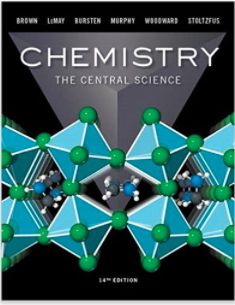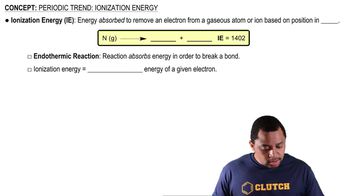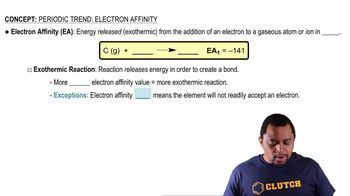Textbook Question
Write an equation for the first electron affinity of helium.Would you predict a positive or a negative energy value forthis process? Is it possible to directly measure the first electronaffinity of helium?

 Verified step by step guidance
Verified step by step guidance

